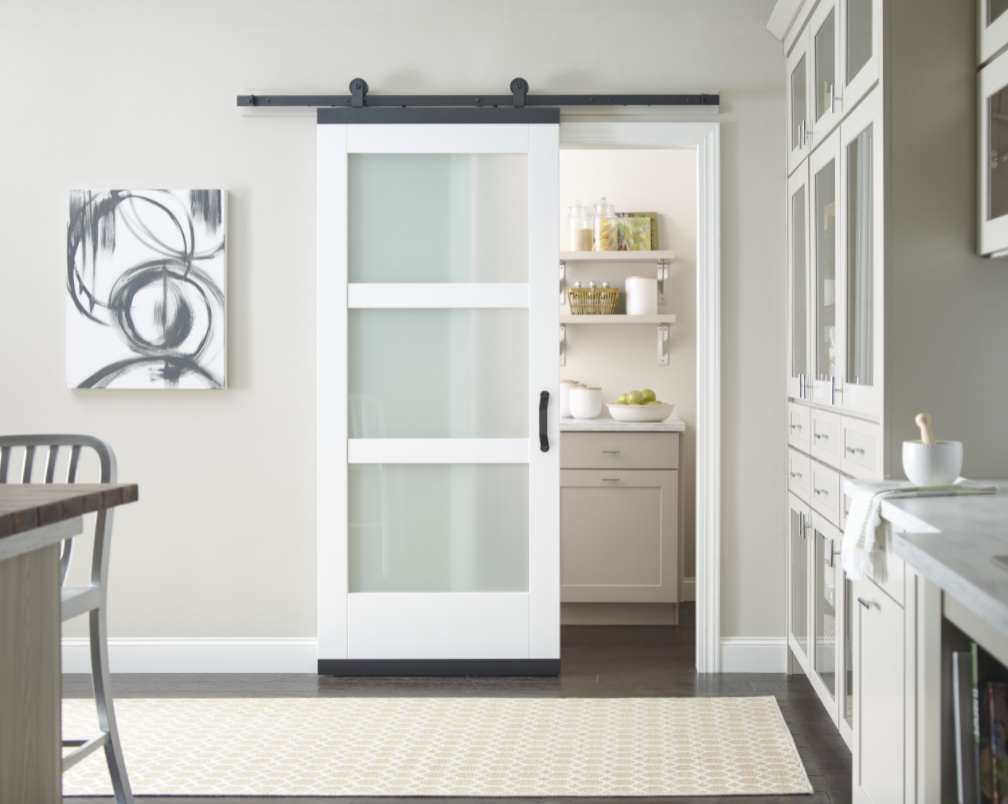
How to Choose Interior Door Hardware
You probably use door knobs and levers several times a day without giving them much thought—until the time comes to replace interior doors in your home and you need to choose door hardware from a variety of styles, configurations, and finishes. Door hardware, which includes not only knobs and levers but also hinges and locking mechanisms, is integral to a door’s functionality and can impact the overall style of a room. Therefore, while door hardware may seem like a minor component, it’s important to take time to consider the different options available and ensure that you are choosing the best products for your home.
Here are some of the key factors to consider when selecting interior door hardware:
- The style of your home. The architectural style of your home—and particularly the rooms where the new doors will be added—can help you narrow down your options for door hardware. For example, if your home is contemporary, you may want to opt for sleek, straight levers with a matte black or chrome finish. If your home has a traditional, Mediterranean, or farmhouse style, knobs or levers with a wave shape in a classic bronze or dark bronze finish may be preferable.
- The members of your household. When choosing between door knobs or levers, you may want to consider who lives in your home. For instance, if your household includes elderly people or anyone else with arthritic hands or dexterity issues, levers may be a better option as they are easier to operate. However, if you have pets and are worried about them being able to let themselves in and out of rooms, you may want to opt for knobs as they are nearly impossible for dogs or cats to twist open.
- The finish. As mentioned above, door hardware is available in a wide variety of finishes, ranging from sleek matte black or chrome to elegant dark bronze and satin nickel. The finish you choose can affect the style of the room and your home overall—but one of the most common questions that homeowners run into is whether the finishes of their door hardware need to match other finishes found in a room, such as on lighting fixtures, cabinet and drawer pulls, or faucets. While the answer will depend on your personal preferences, here are a few helpful guidelines to keep in mind:
- If you’re aiming for a more cohesive, minimalist aesthetic, it’s probably best to choose hardware that will match the other finishes in your home, or at least in the same room.
- If you are comfortable mixing and matching finishes, it can serve as a way to add character and depth to your interior design—but combining too many different finishes can turn character into chaos. To avoid this, limit yourself to 2-4 finishes that complement your home’s fixtures and décor. While it may seem counterintuitive, contrasting finishes—such as matte black and brass, or oil-rubbed bronze and satin nickel—tend to complement each other nicely when used in the same space.
- The function of each door. One of the most important considerations when choosing door hardware is whether a locking mechanism is needed. For example, if the door is leading into a bedroom, bathroom, or other space where privacy is valued, the hardware will need a mechanism that can be locked from inside the room. One exception to this may be the door to a young child’s bedroom, if you don’t want the child to be able to lock themselves in. Doors to closets, hallways, and offices generally do not require a lock. And in some cases, you may choose to install a “dummy” knob, which serves a purely decorative purpose on doors that do not latch. Dummy knobs or levers are commonly seen on the non-functioning side of French doors.
- Don’t forget the hinges. While most of your door hardware decision-making process will focus on the knobs or levers, there are also different types of hinges to choose from. Most interior residential doors use plain bearing hinges, which feature a simple barrel held together by a pin that may or may not be removable. However, you might also opt for a spring hinge, which causes the door to automatically close behind you (helpful for screen doors or doors leading into a garage) or specialty hinges—such as strap or corner hinges—to create a unique look. As with your knobs and levers, be sure to choose a finish for your hinges that will complement the surrounding fixtures.
Even if you are not replacing your interior doors, switching out door hardware can be a relatively easy and inexpensive way to give your home an updated look. At Arizona Door Store, we offer a variety of levers, knobs, and other types of door hardware available in different styles and finishes to suit your needs. Along with our extensive selection of interior and exterior doors, our door hardware is designed for contractors and homeowners interested in DIY installation.
For more information about our products, get in touch with us today!

